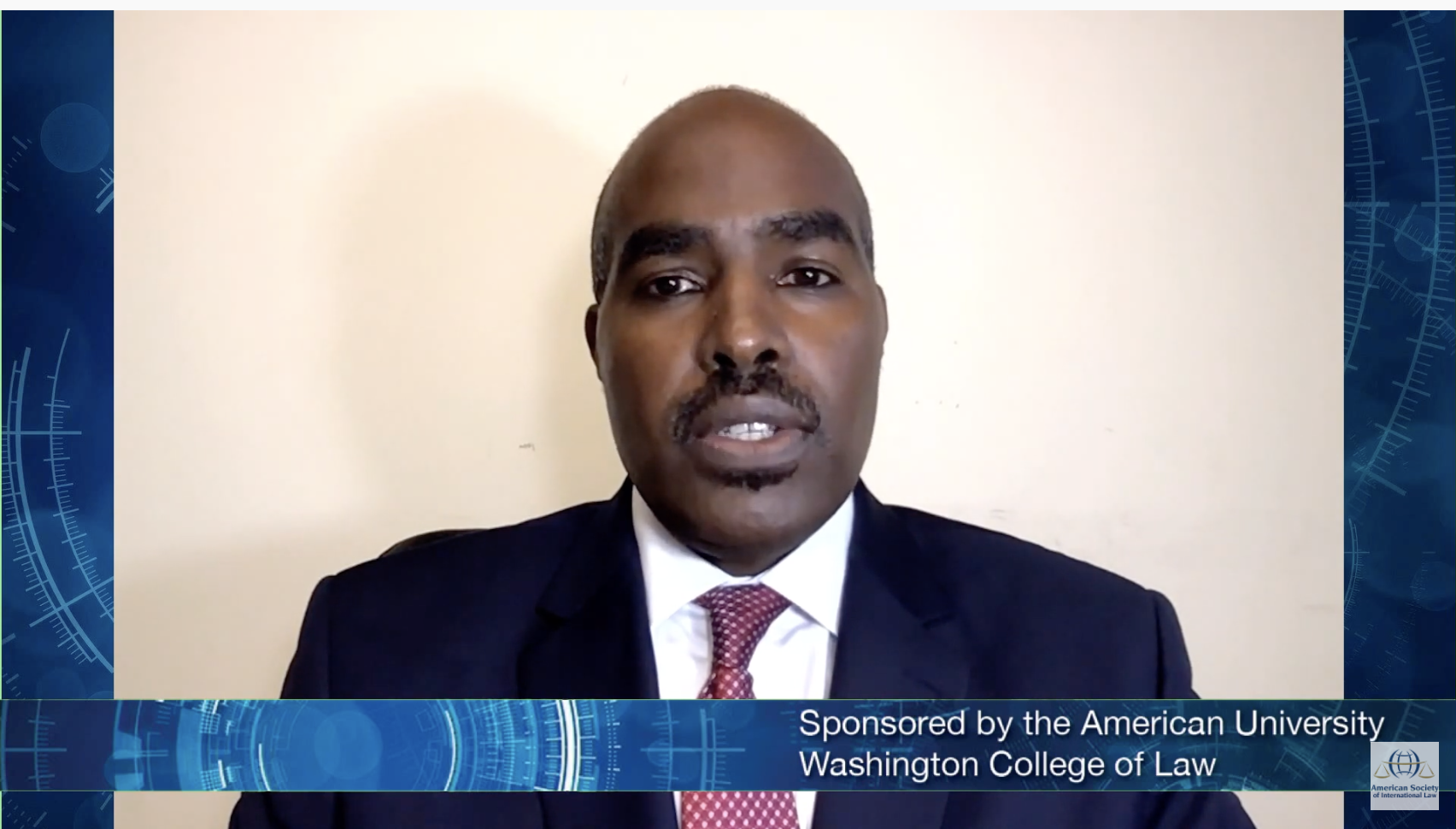
AUWCL Sponsors 22nd Annual Grotius Lecture
The promise of international law: a third world view
The 22nd Grotius Lecture in April 2020 was given by James Gathii, Wing-Tat Lee Chair in International Law at Loyola University of Chicago. The Grotius Lecture is sponsored by AUWCL in collaboration with ASIL. This year’s Grotius Lecture was entitled, "The Promise of International Law: A Third World View." The Distinguished Discussant was Professor Fleur Johns from University of South Wales. Professor Gathii set out two challenges. His first challenge was about the discipline’s limited geography of places and ideas. He demanded stronger scrutiny of the places to which scholars look to register significant doctrinal and legal developments in international law. He noted the discipline’s endemic under-attention to institutions and experts located in Africa, and the need to label innovations for which they are responsible. His second challenge was about taking account of the distinctive place of knowledge production of the third world. The third world approach contests the notion that international law is applied from nowhere, but instead that it is a tool of continued domination from the traditional places of creation of international law.
As the discussant, Professor Fleur Johns noted, Professor Gathii works with two notions of the word "promise." The first one is the notion of promise as an assurance to others. This is the promise of contractualism. The second is the idea of promise connected to futurity, i.e. as an indication of a future event or condition. This is the promise of counterfactualism. As to the first, Gathii seems to counter the assurance that international law generally follows. We should not feel so assured about the assurance of international law. International law has to further evolve and include other places such as Arusha (Tanzania), where currently two permanent international tribunals have their seat. International law should be more open. African jurists are generally on the fringes of the promises of international law and that should change. This is not to argue for broader recognition but rather for resistance, i.e. resistance to knowledge production systems that silence African jurists and their engagements with international law. This is an argument for anti-racism, not only for racial tolerance.
According to Johns, Gathii refigures the futurity with which international law is commonly invested. In his account, international law’s future promise can be observed in the willingness of TWAIL’s scholars to both struggle against that international law that they were taught, and yet remain amenable to it and still see it as something that can be rescued. The promise of international law surrendered is not a near neighbor of its present. The future condition of international law evoked in the “reveal and imagination of TWAIL” is almost surreal in its insistence upon multiple possible interpretations. And yet the engagements are also resolutely practical. As Gathii highlights, the practical commitment of TWAIL becomes manifest in the many ways in which TWAIL’s scholars are active in the practice of international law. For example, he mentions the numerous Special Rapporteurs on various subject matters related to human rights at the United Nations.
Further, for Professor Johns it is important to note that the second sense of promise is not a negation of the first. TWAIL scholars’ continued willingness to work on the international law future does not correct or make up for the blindness of the discipline’s promise from its mistrust assurance. TWAIL scholars take Arusha and other third world places as an epistemic starting point to offer something other than an acclamation of the pre-existing order. This necessarily points to ending the insularity of the Western world as the sole leader in international legal scholarship.